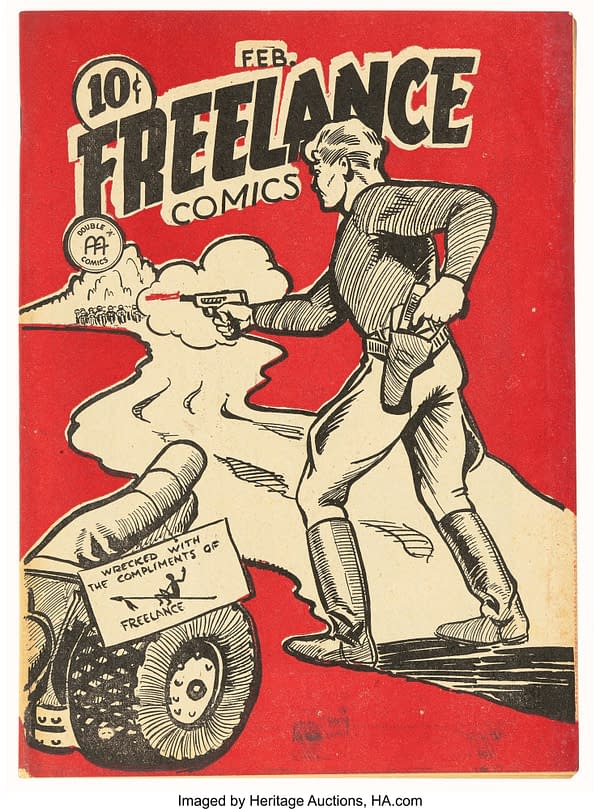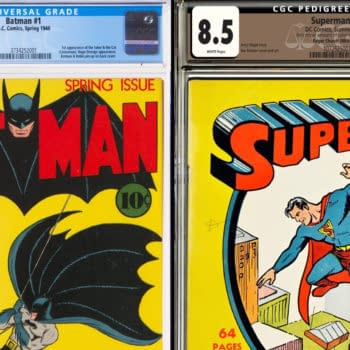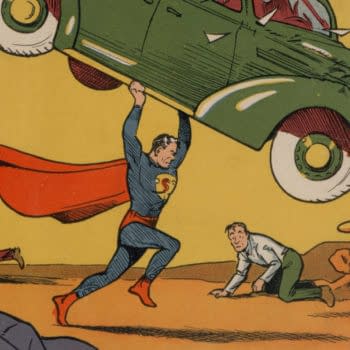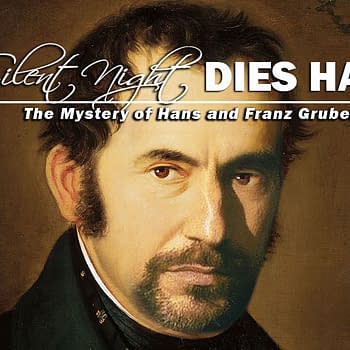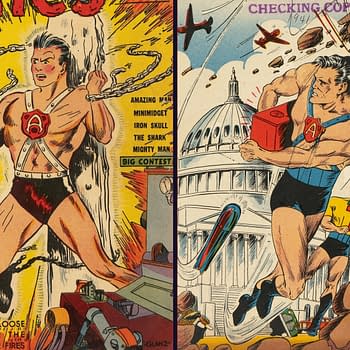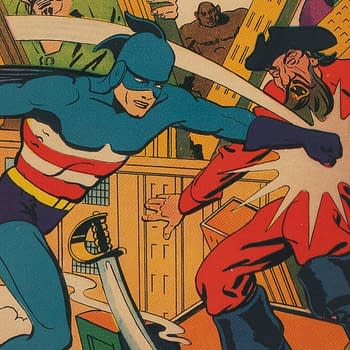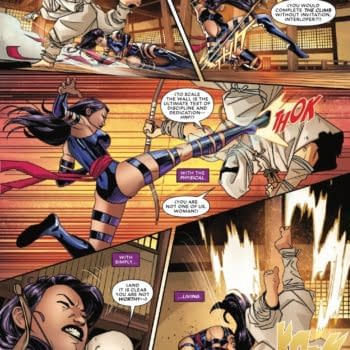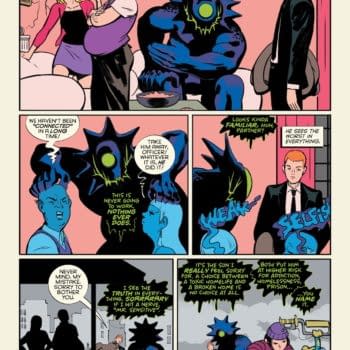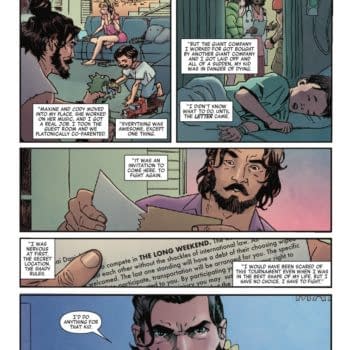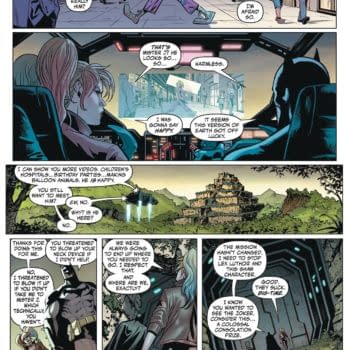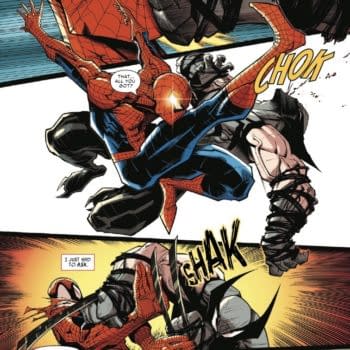Posted in: Comics, Heritage Sponsored, Vintage Paper | Tagged: canadian comics
Early Freelance Comics by Ted McCall and Ed Furness, Up for Auction
Two of the foundational comic book creators of Canada's Golden Age, Ted McCall and Ed Furness, teamed up for Freelance Comics.
Article Summary
- Discover early Freelance comics by legendary creators Ted McCall and Ed Furness in Canada's Golden Age.
- Explore Freelance Comics V1#5 (1942) with its pulp-style war-era character and interior art by Furness.
- Learn how WECA spurred Canadian publishers into innovation amid U.S. comic book import bans.
- Uncover the ties between Anglo-American Publishing and Sinnott News in pioneering comic history.
In his book Invaders from the North: How Canada Conquered the Comic Book Universe, comic book historian John Bell has noted of foundational Golden Age Canadian comic book publisher Anglo-American, "Maple Leef's first competitor, Anglo-American, was owned and operated by four Toronto businessmen: Thomas H. Sinnott, John M. Calder, John G. Baker, and Edward C. Johnston; but its creative force derived primarily from two creators, Ted McCall and Ed Furness."
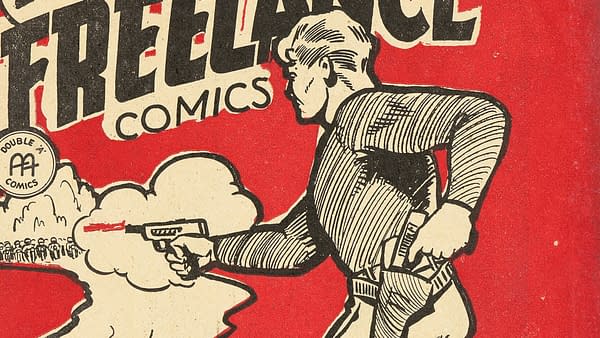
Edwin R. McCall (1901-1975), better known as Ted McCall, was the writer and creator of the comic strips Men of the Mounted and Robin Hood and Company, and a reporter and later editor for the Toronto Telegram. By most accounts, McCall looked at the passage of the War Exchange Conservation Act on December 6, 1940 as an opportunity for Canadian publishers. WECA banned the import of U.S. comic books and also banned the import of materials needed to facilitate reprints.
According to John Bell's book, Canuck Comics, "He took the idea to Harold Sinnott Sinnott of Sinnott News, a magazine distribution company in southern Ontario. Sinnott liked the proposal and Anglo-American Publishing Co. Ltd was born, not to repackage U.S. superheroes but to republish Ted McCall's comic strip Robin Hood and Company which appeared in March, 1941."
This was not McCall's first brush with the comic book publishing concept. He had previously licensed Robin Hood and Company to the French journal L'Aventureux, which ran the strips in color as Robin des Bois in 1937, and to UK publisher Amalgamated Press for their comic weekly Sparkler in 1938.
The four founders of Anglo-American were also well-positioned to make such a leap, with ties to magazine distributor Sinnott News. Thomas Harold Sinnott, a son of Sinnott News founder Thomas Storey Sinnott, was Sinnott News manager at the time of the formation of Anglo-American. The elder Sinnott had been a longtime employee and eventual president of the Toronto branch of London's Imperial News Company. Sinnott acquired this branch outright and turned it into Sinnott News.
John M. Calder had an office at Sinnott News well prior to the founding of Anglo-American, while at the same time being the principal of Calder Printing — apparently a legacy of his father's 1896-founded Times Printing Company. Calder was also the brother-in-law of fellow Anglo-American founder Harry Sinnott. While his prior role at Sinnott News is currently unclear, it's possible there were previous Sinnott/Calder publishing collaborations.
John G. Baker was a Sinnott News accountant. Edward C. Johnston was a former banker and Toronto car dealer, but he too would become a Sinnott News manager shortly after this time.
In the same month as Anglo-American's tabloid-sized release of Robin Hood #1, Maple Leaf Publications released Better Comics #1, featuring all-new material. This moment is widely considered the beginning of the Golden Age comic book era in Canada. Anglo-American rather mysteriously published four reprint issues of Fox Feature Syndicate titles this month as well, a move that violated WECA, perhaps inadvertently.
The debut issue of Freelance followed quickly with a July-August 1941 cover date, a story by McCall, and artwork by Ed Furness. The series featured black and white interiors with two-color covers (black + one color) through 1945. The character has sort of a classic pulp-style origin. According to John Bell, the character was raised by a tribe of elders in Antarctica "who raised him until he could be sent to the outer world for his education. They could not tell him his identity because of a promise extracted from them by his father who had brought him there as a baby."
Freelance is one of the most enduring characters of the Canadian Golden Age, and also one of the most important. There's a nice VG/FN copy of an early issue of one of Canada's foundational Golden Age heroes with Freelance Comics V1#5 (1942) up for auction at the 2025 March 13 Canadian Golden Age Comics Showcase Auction #40290. As for McCall and Furness, we'll have much more about them in upcoming posts.



